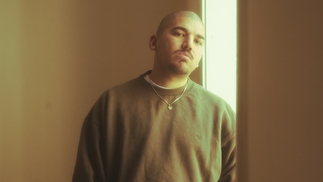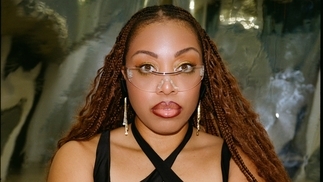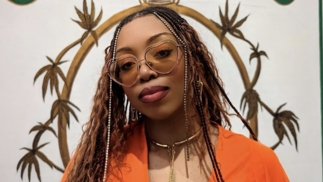Recognise: Suzi Analogue
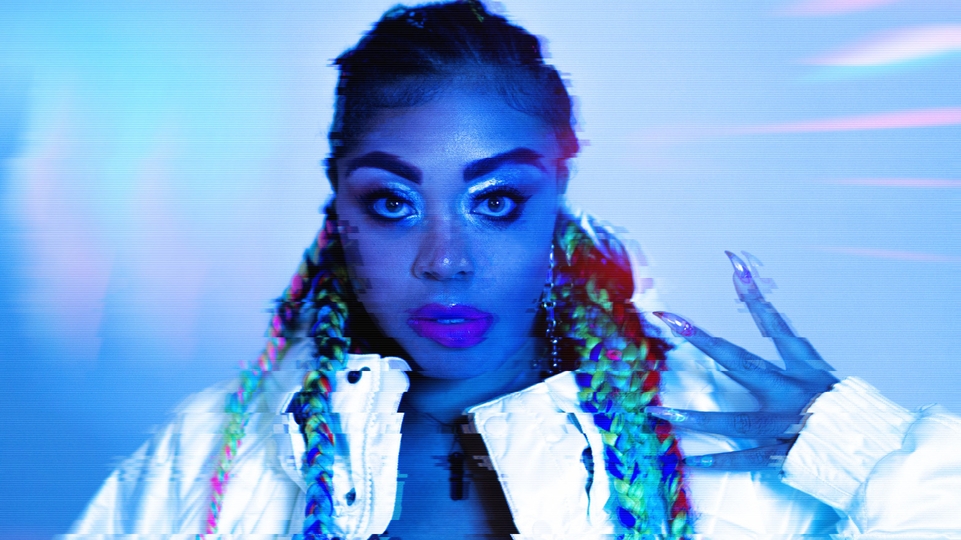
Suzi Analogue delivers a dazzling mix of hyperkinetic club music for the Recognise series, and catches up with Tajh Morris about her genre-spanning style, her experience as a queer Black woman in the music industry, and her goal to educate the world on the unsung contributions of those communities to music
2020 was an interesting year, and an especially challenging time for artists. Most people involved in the music industry have been affected by a combination of COVID-19, economic hardships and navigating a world where the internet is currently the safest (and sometimes only) way to gather together. Maya Shipman, artistically and better known as Suzi Analogue, has been adapting to the ever developing global situation and keeping an optimistic outlook for the future.
Suzi Analogue is a multimedia and genre-spanning artist that has been making major moves in the often male-dominated music scene. Known for incorporating various styles of African-American music into her work, this stems not only from her experience as a queer Black woman but from her geographical surroundings as well. “I was born in Baltimore,” states Suzi, “so growing up I listened to a lot of B-more club. I didn’t grow up in Baltimore but I was born there and always have had family there. So that style, it always inspired me to kind of just say what I want, to do what I want.” She grew up in Petersburg, Virginia, right outside Richmond where she forged an early fascination with recording to cassette.
After attending college in Philadelphia, where she honed her craft and made broader artistic connections, she made her way to NYC. It was there that her career blossomed with the creation of her record label Never Normal Records, before settling in Miami where she currently resides. “In my methods of sharing music I try to blend every genre, every Black and vintage genre that I can. To actually show people that we have a connection but we’re all so different in our sense of expression.” This ideology has extended to her forming the Never Normal Sound System which she describes as, “A collective that is intended to use creativity to help determine the evolution and positivity of Black futures. It’s a space for artists to come together, share and learn.”
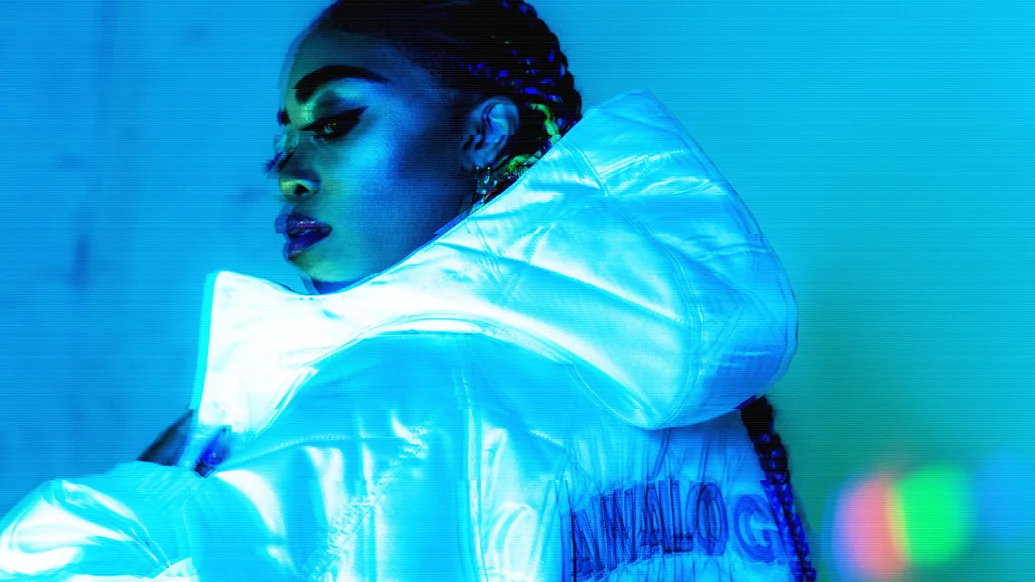
Although from the outside the last decade has been wonderful to her audience, she has never shied away from expressing her views as a Black woman in the industry. “I was in a really weird situation the last few years where... I mean, this is just sharing. I share my experiences as a female entrepreneur. I was actually in an abusive financial situation. So I wasn’t able to create tapes as much as I wanted to. I was in a bad scenario, even my synthesizers were stolen and pawned while I was on tour. I’m still just recovering from that.”
The last year was shaping up to be one of her biggest, starting with the latest iteration of her ‘ZONEZ’ mixtape series. “I started ‘ZONEZ’ in 2016 and it was a way for me to show my contributions to dance, hip-hop and my stylistic sensibility with production and music. When I started those tracks, it was focused on the States. Last year I decided we need to go worldwide. I was actually inspired by my first time going to Africa. When I came back, I realised I’ve been making beats and I’ve been making tracks but I need something to play when I go out there so they know where I’m coming from. I came back with a real global mindset to make ‘ZONEZ’ and to create audio-visual blips that invite you into my identity. Each ‘ZONEZ’ has grown so much more powerful than the last.”
As venues and countries shut down, her tour was cancelled and Suzi had to leave Europe in a hurry, a situation many international artists experienced. With minuscule assistance from the US government, musicians have had to transform their home spaces to accommodate internet streaming for income. The fragile nature of financial stability for The Arts was laid bare. Combining this with having to see the Black community take the brunt of the crisis in the States was a heavy thing to process: “Black people were hit hard because we can’t just stop working. If you work at the supermarket, you’re going to have to keep going in. Because you can’t afford not to. We started seeing the different levels, the different class levels, the people who could afford to work from home and had jobs that actually could be tailored to work from home.
“I’ve had to attend funerals, and there were others I couldn’t attend,” she continues. “Trying to navigate this all while trying to keep a roof over your head with no live shows... it’s been really interesting. Really, really interesting — I can say, looking back. I’m proud of myself and the artists for not giving up, but I can definitely say it’s been very hard here at this point.
“We actually need to start to work together and not always rely on these government systems. We can create our own systems that could provide care for ourselves as well. It will take the innovative artists in the future [to do] that. What excites me about going into the next year is how we can actually make it different and have a sense of self, a sense of care and accountability that goes into supporting musicians beyond just the product that they make. I’m really interested in seeing what companies, entities, former promoters, organisations will step up to the plate and actually help to evolve things. Because it’s evident that an evolution is necessary at this point.”
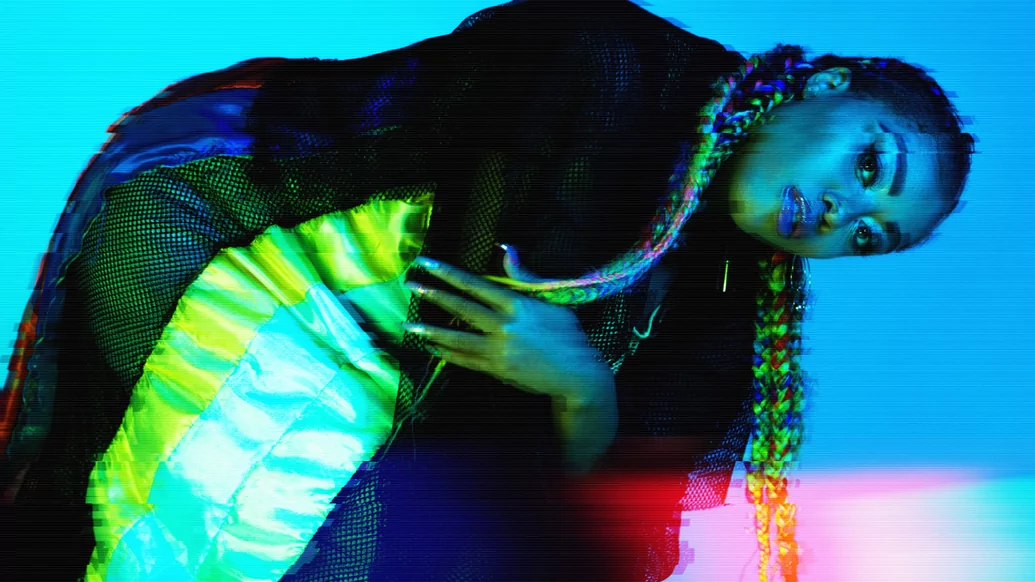
Over the summer, Suzi left Miami once to meet up with artists from her label in Atlanta. This coincided with the protests for racial justice that erupted from the deaths of George Floyd, Breonna Taylor and Rayshard Brooks. Not only did she see and feel the energy of the crowds, but some of her associates ended up getting arrested. While it would be easy to get discouraged with such an intense turn of events, the opposite is the case here. This is evident in her latest release, the ‘SU CASA’ EP, which has strong political overtones.
“I made tracks to be blended into 140 and 160bpm, so that people can play them and also receive a message other than just shake your butt. I love to put that message in a track, but I feel like more dance artists, more electronic artists can be putting messages into the music that will inspire and encourage people in this very moment where we need to hear it most.
“I’m somewhat of a historian and an ethno-musicologist of sorts. I’ve been taking time this whole year to look at the care that has been given to Black people in this country and in the world. Black artists gave many innovations. We’ve given house. We’ve given techno. We’ve given drum & bass. We literally had movements and groups of people who are of African descent, give the world so much and receive so little back.”
Towards the end of our chat DJ Mag brings up Miss Tony, an obscure deceased queer B-more club MC that Suzi once mentioned as one of her favourite artists. We share our appreciation of this unsung hero, making the connection between the ascendance of queer culture in hip-hop and club music. “Miss Tony was not allowed to become a millionaire off of what they were doing — it was the next generation. So we have to help artists now, so that they don’t fall into becoming unknown. I feel as though we’re in a place where innovators are getting punished, almost ideologically punished, and Miss Tony is a great example. People that were right under our nose that really deserved to be uplifted far beyond in the music industry. They were so ahead of the times. And so we can’t, I can’t... I can’t say what everyone else is going to do, but I can’t let that happen again.
“My goal is to truly educate about the queer Black contributions to music. So many things that have become popular in music have come from queer and Black identities. You can literally just go down the list and figure it out. But these people aren’t championed and talked about. So we’re making space now. We have the power. With our creative efforts to shed light and champion the people who are carrying on the spirit of it today. And that’s exciting for me, it gives me hope. Even in these dark times, it really gives me hope that we could try to make things a little more right than they were before.”
Tracklist
Kelela 'Earth Is Ghetto [Suzi Analogue Uziflip]'
BADSISTA 'Lucy Flip'
Suzi Analogue 'Flyyy'
Safiyahh 'Ridin Round Wit My Gurlz'
HI$TO 'LUST'
Lovey The Don 'STOOPID (Unreleased)'
x.nte 'Rudeboi Xxtra'
Suzi Analogue 'Stay Ready/Ur Dreamz.'
BADSISTA 'Baile Do Automotivo'
Dizzy Fae 'Booty 3000 [Suzi Analogue Remix]'
def.sound ft. Jimetta Rose 'Revolution'
Suzi Analogue 'PostEverything'
Authentically Plastic 'Untitled'
Suzi Analogue 'DANCEHA'
Cakes Da Killa x Heavee 'I Run This Club 2020'
Authentically Plastic 'Untitled'
Heavee x Big Freedia 'Get Back'
Suzi Analogue x MoonDoctoR 'Untitled'
Authentically Plastic 'Spine Jolt
INVT 'Disruption'
Suzi Analogue ft. ZenSoFly 'Way Live
x.nte x Elevation ft. Wouj Kadinal & NO EYES 'Handful Of Sand'
NO EYES '2 Noddy'
Suzi Analogue ft. Oyinda 'BREAKTHRU'
Ras G 'Heart and Feather (Maat)'



